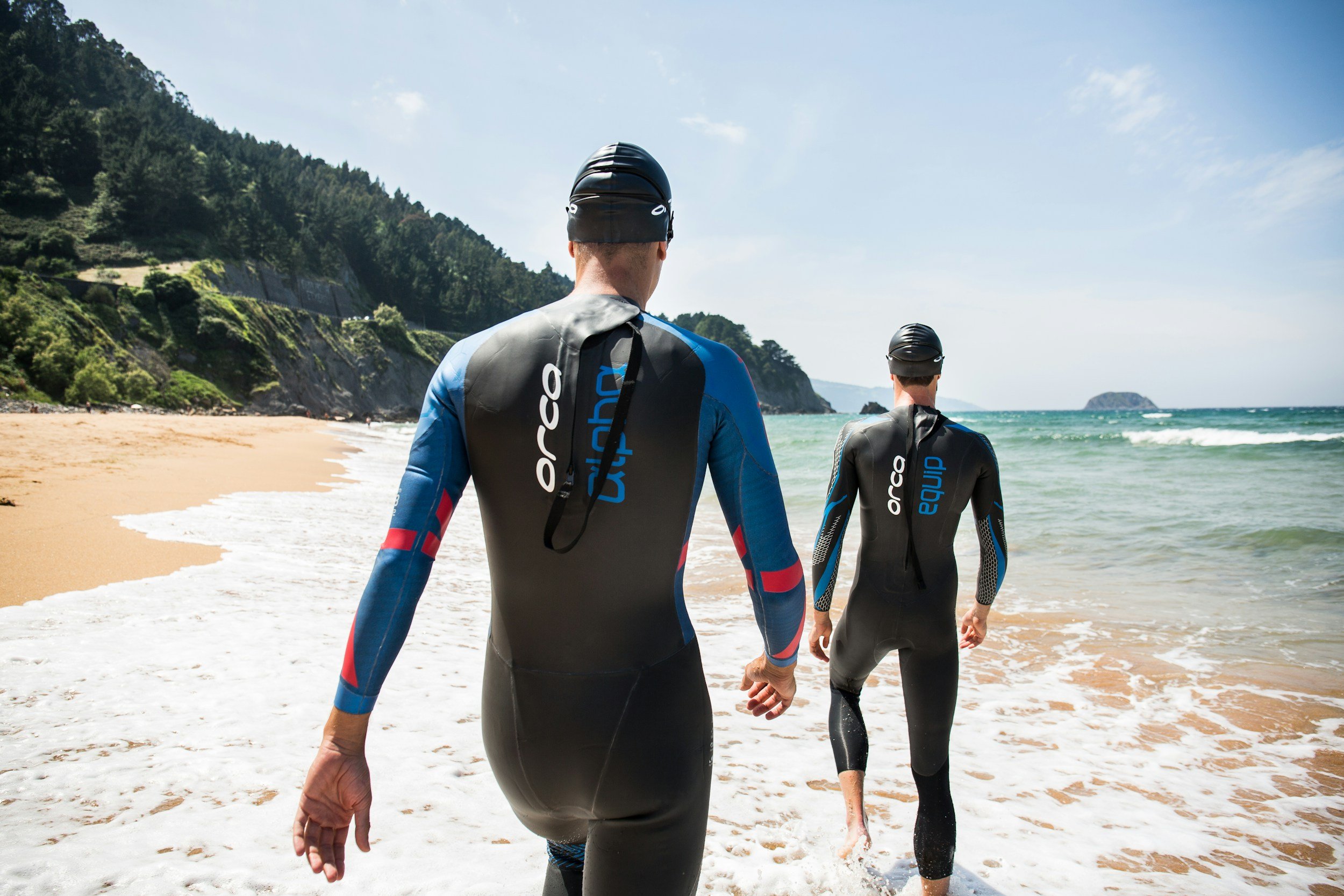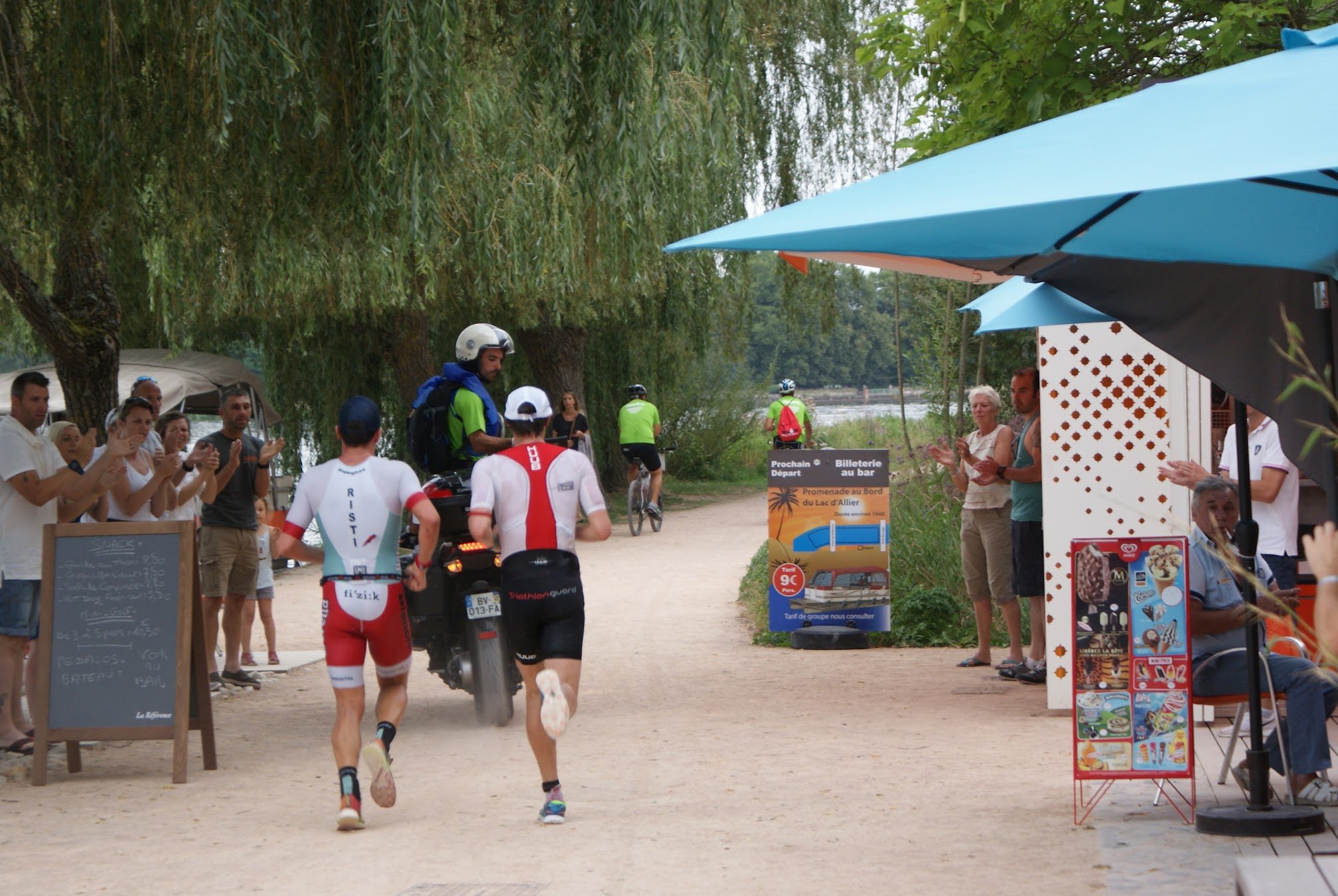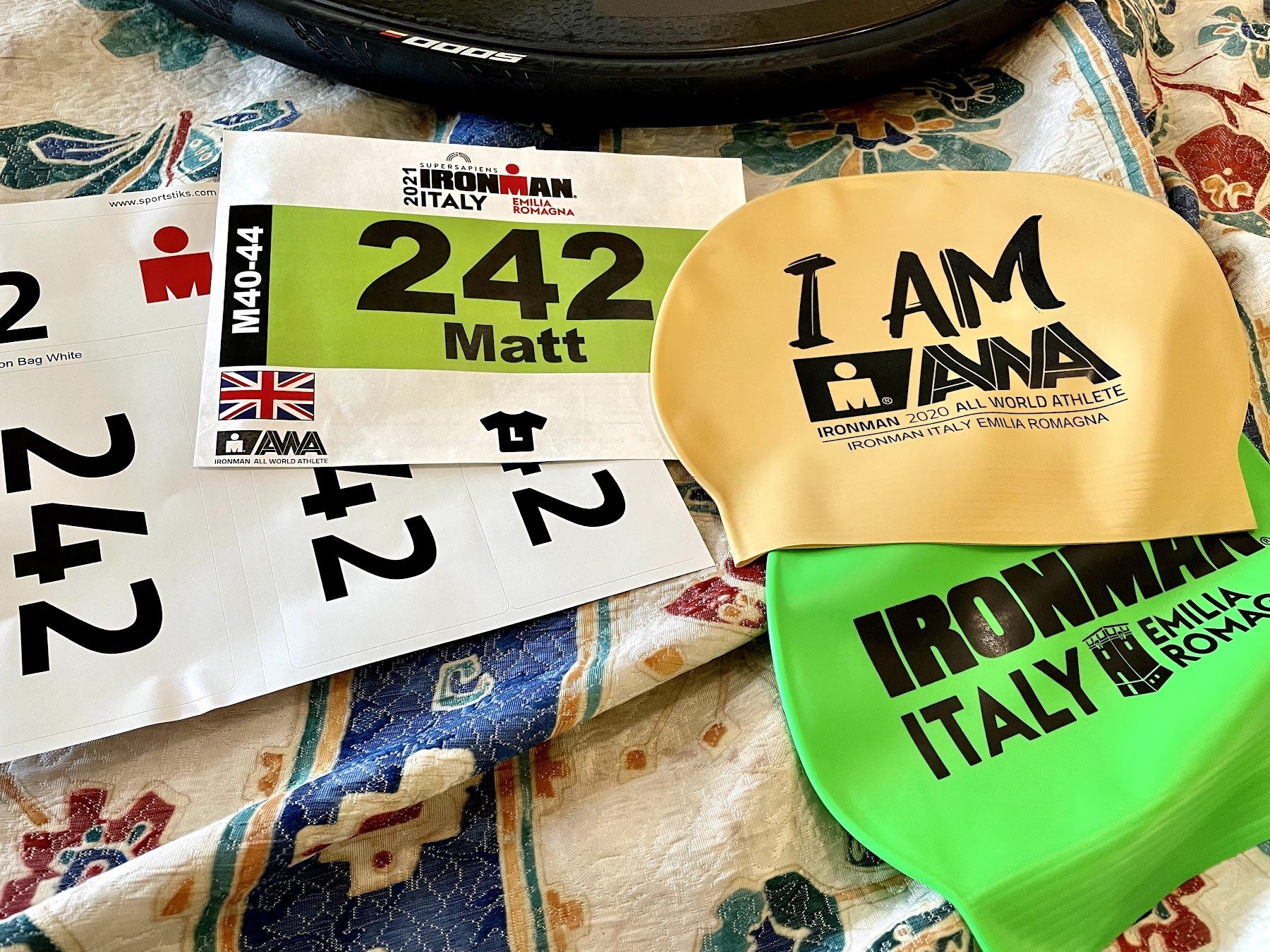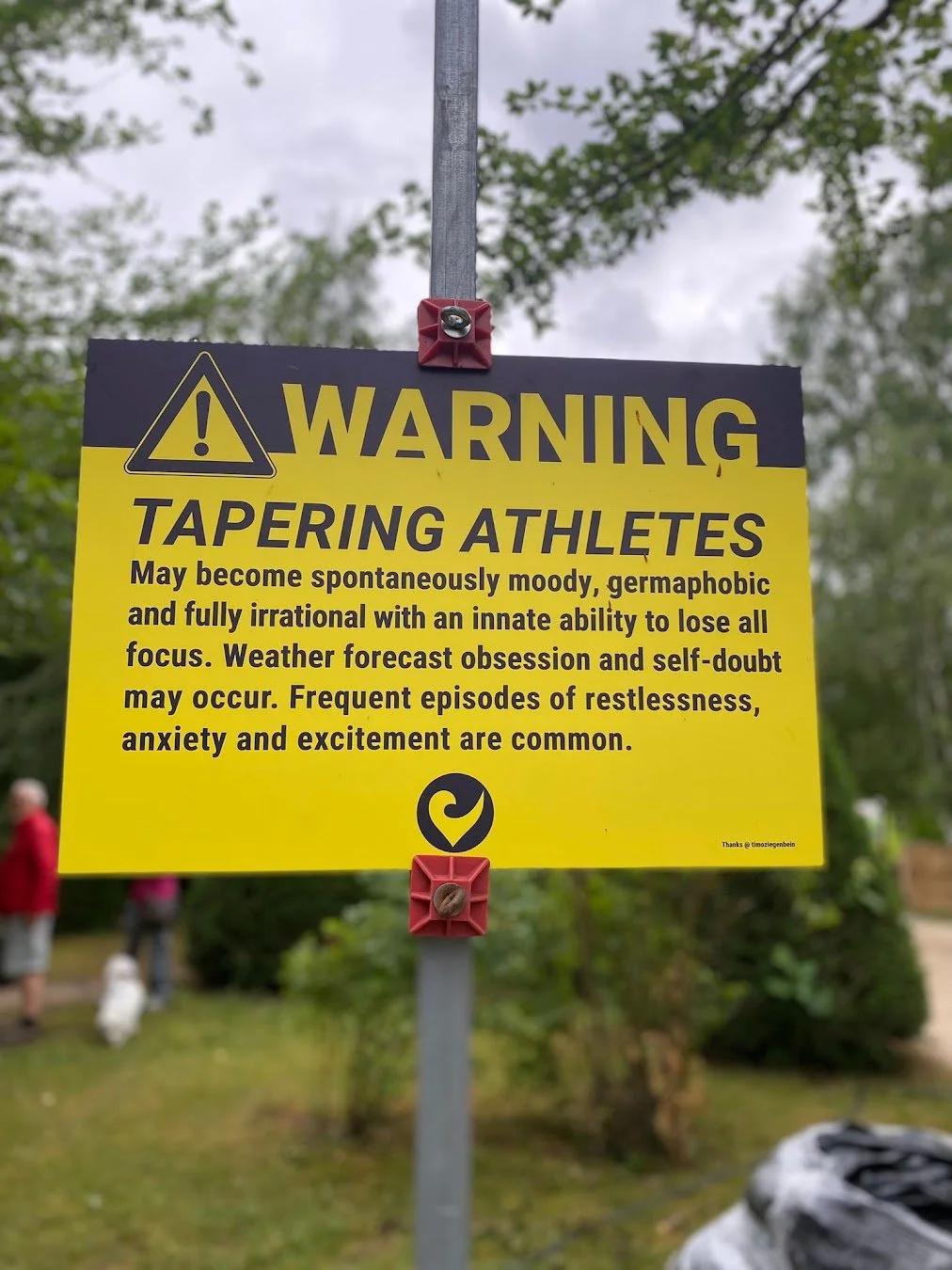
How to train for an Ironman:
the complete guide
Taking the leap from shorter triathlons like sprints, olympics or even 70.3s to a full Ironman is one of the most rewarding challenges you'll ever tackle. However, for most people, it's a journey that's filled with trepidation, anxiety and doubts along the way. The adventure between now and the finish line will require a lot more than just physical endurance — completing an Ironman is just as much about understanding your body, managing your time, fine-tuning the gear and logistics and staying injury-free as it is about your aerobic fitness.
Little wonder then that so many athletes training for their first Ironman feel overwhelmed at times. If you feel like you've bitten off a little more than you can chew, don't worry – you're far from alone in this. In fact, half the athletes on the start line on race day will feel exactly the same. But with the right approach and resources, you can not only finish but thrive on race day.
Breaking down Ironman training
1. Build a solid foundation
Ironman training isn't about going all out from day one. It’s about building a strong base over time. This means gradually increasing your volume of swimming, cycling, and running while developing efficient form. It means consistent overload managed across all three disciplines rather than one-off hero sessions. It's also about improving technique and working all your systems in the right combination. The goal? Preventing you from becoming injured or over-fatigued at any point while preparing your body to withstand hours of continuous activity.
We've been coaching first-time Ironman athletes for more than a decade and the biggest mistake we see is athletes leaving it too late before asking for help from a coach. Most off-the-shelf Ironman programs are 12-16 weeks in length, so athletes think this is all they need to train for an Ironman. However, these programs assume a good level of aerobic fitness before starting the program. Once athletes realize this, they come to a coach wanting help to "cram for their exam" in just three months.
How long do you really need to train for an Ironman? That depends on your previous experience and overall fitness, but if you really want to enjoy your race day, we'd suggest at least 6-12 months.
2. Focus on time management
Ironman athletes often juggle full-time jobs, family commitments, and social lives. So having a training plan that maximizes the limited training time available with structured, efficient workouts instead of garbage kilometers for the sake of volume is key. This is where professional coaching really shines – a good coach will tailor a weekly program around your other commitments with the goal of squeezing the maximum gains out of the time you have available.
If you dream of crossing the finish line at an Ironman but are worried about the time required to train, just know that everything is possible with some adaptations or considerations in mind. For example, a few years ago, we coached Roberto (a late-40s senior executive who traveled a lot with work and had two school-aged kids) to achieving his dream of finishing Ironman France in under 13 hours based on just 4-6 hours of training per week.
The key was starting a full 12 months out from race day. We had to be agile and able to change Roberto's training each week to fit his schedule, and he never missed a single one of the sessions that were scheduled. Sure, we fit in a few extra hours here and there when public holidays and vacations allowed, but the volume remained low throughout, showing just what can be done when coach and athlete are in sync.
3. Preventing injury
In a world where consistency is key, injury is the enemy. Ironman training is a long game, and injuries can derail weeks or months of progress. The most common cause of injury we see is athletes training either without a training plan or, perhaps even worse, using a one-size-fits all training plan that they've either found online or has been served up by a lazy coach.
That leads to them overreaching to achieve levels that haven't been tailored for them and don't recognize and adapt to that athlete's individual physiology, background or fitness profile. We use a decade of experience paired with in-depth metabolic testing and the latest in AI analysis to ensure athletes' training stress and recovery are always well balanced and we place a high level of emphasis on injury prevention strategies, like improving mobility and strength training. Training for Ironman is always going to be hard work, but it should also be smart work.
If building solid aerobic foundations, avoiding injury and finding a training schedule that works with your other commitments are the absolute must-have non-negotiables for finishing an Ironman, then there are a number of other considerations that will also have a huge impact on your race day but are often overlooked by newer triathletes especially.
Nutrition.
It's a well-worn cliche that nutrition is the fourth discipline of long-distance triathlon. But it's a cliche for a reason – it's hard to overstate the role that nutrition has in endurance and ultra endurance sports.
Over the years, we've been approached by many athletes who had slowly limped their way to a 70.3 finish line and wanted to either finish a 70.3 in better condition or make the step up to the full Ironman distance but didn't know how they could do that after struggling so much in their last Half Ironman.
While we obviously make plenty of improvements to their training, it's invariably improving their nutrition and dialing in calories for both training and racing that makes the biggest impact.
The Ironman is as much a test of fueling as it is fitness. What you eat and drink before, during, and after training will dictate how well you perform. Work with your coach to get personalized nutrition strategies that ensure you’re energized, recovering optimally, and prepared for the demands of race day.

Gear and equipment.
From wetsuits and goggles to bikes, GPS watches, tri suits and super shoes, there's a dizzying array of triathlon gear available and, especially for newer athletes, it can be hard (and expensive!) to navigate all that equipment and discover which gadgets are marketing fluff and which could make or break your Ironman experience.
Knowing what works for you, your experience level, your goal race and your unique physiology in the race conditions is essential.
You can soak up some great knowledge in triathlon magazines, on forums or from members of your local tri club.
But we also make sure we have coaching calls in which we explain clearly to athletes which gadgets and training aids will make a real, measurable difference and which might be good when they're fighting for podiums but aren't worthwhile at this stage.
Mental toughness.
Training for an Ironman is as much a mental challenge as a physical one. No matter how well-trained you are, or how perfectly your fuelling strategy goes, there's going to be a low point Building mental resilience is crucial for overcoming tough training days and staying focused on race day.
One of the ways we've dealt with this element at Motivate Triathlon Coaching is with race simulations.
Thanks to some of the cutting-edge tools we use, like TriDot's Race-X, we can create accurate simulations of what the course profile and conditions might be like on race day.
As we get closer to race day, we set training sessions simulating some of the toughest aspects while giving athletes the mental tools to stay resilient in those moments. When race day comes, those mental muscles have already been stretched.
Is a coach a worthwhile investment for you?
The one thing we hear time and time again from our athletes is "I wish I'd started working with a coach earlier." Many newer athletes feel like they're "not good enough yet" to have a coach when the reality is that a coach is there to act as a guide and unlock your potential – which is as relevant to new triathletes as it is to seasoned Ironman competitors.
While you can download a generic Ironman training plan, having a coach takes your preparation to the next level. At Motivate Triathlon Coaching, for example, we do a whole lot more than simply setting your workouts.
We build a relationship with our athletes to find out what they need and what motivates them so we can tailor our approach around the athlete.
We create a tailored training plan that's checked daily and adapted as often as needed.
We help athletes plan their season, including B and C races.
We create precise race day pacing and fueling strategies.
We advise on athletes' gear and nutrition choices.
We include metabolic testing for both cycling and running so we can accurately map our athletes' training zones, as well as their strengths and weaknesses.
And we provide an annual bike fit (virtual or in person) to make sure athletes' race-day machines are dialed in.
The way we see it, we're guides and advisors here to help athletes avoid common pitfalls and stay healthy, but also introduce them to the unknowns. After all, you don’t know what you don’t know!
It's this holistic approach to Ironman training that provides athletes with all the tools they need to succeed that sets us apart from standard coaching services.
Training for an Ironman is a monumental challenge, but with the right guidance and support, it’s a journey you’ll never forget.
Ready to elevate your training?
Learn more about Motivate Triathlon Coaching here.
Book your free no-obligation consult with a Motivate coach by clicking below.



